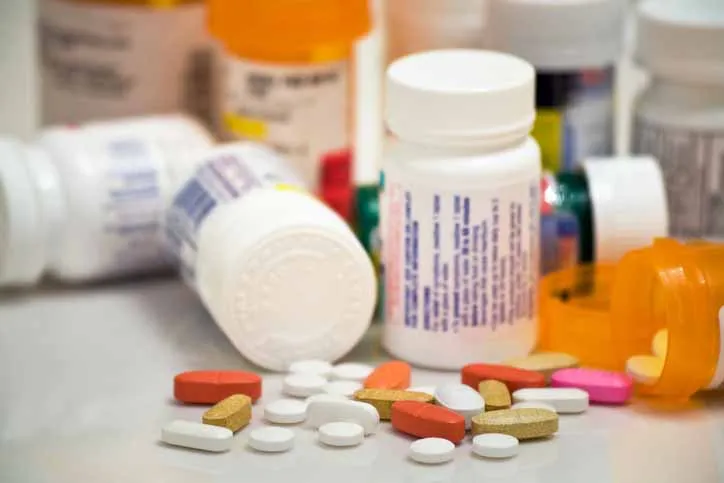
Photo: dszc/Getty Images
Starting Oct. 1, the United States will impose a 100% tariff on branded or patented pharmaceutical drugs unless manufacturers are building a plant in America, President Donald Trump posted on Truth Social late Thursday.
“‘IS BUILDING’ will be defined as, ‘breaking ground’ and/or ‘under construction,’” Trump said. “There will, therefore, be no Tariff on these Pharmaceutical Products if construction has started.”
As of Friday, the administration had released no official documents related to the tariff announcement, the American Hospital Association said.
The American Hospital Association has been pressing for tariff exceptions. In May, the AHA submitted comments to the Department of Commerce urging the administration to exempt products already experiencing shortages and for countries that produce a significant portion of the U.S. pharmaceuticals and pharmaceutical ingredients market supply.
“The lives of patients often depend on the ready availability of drugs to respond to emergent conditions like heart attacks and infections, and other critical illnesses like cancer and organ failure,” the AHA letter said. “The supply chain for pharmaceutical products is highly complex and requires hospitals to draw on both domestic and international sources. For many patients, even a temporary disruption in their access to these needed medications could put them at significant risk.”
WHY THIS MATTERS
Trump’s threat ups the ante between the federal government and drug manufacturers to lower prices for non-generic drugs.
Generic drugs account for the vast majority of prescriptions in the U.S., according to The Hill.
Alex Schriver, senior vice president, PhRMA, the Pharmaceutical Research and Manufacturers of America, released this comment to Healthcare Finance News: "Most innovative medicines prescribed in America are already made in America. PhRMA companies continue to announce hundreds of billions in new U.S. investments thanks to President Trump’s pro-growth tax and regulatory policies. Tariffs risk those plans because every dollar spent on tariffs is a dollar that cannot be invested in American manufacturing or the development of future treatments and cures. Medicines have historically been exempt from tariffs because they raise costs and could lead to shortages."
PhRMA posted on its website Monday: “PhRMA member companies are making historic investments in U.S.-based manufacturing and infrastructure.”
They are also providing financial assistance to millions of insured and underinsured patients who have been failed by a broken health insurance system and are announcing a new website that will simplify access to manufacturer direct purchase and patient assistance resources, PhRMA said.
THE LARGER TREND
In July, Trump sent letters to 17 of the world’s largest pharmaceutical companies demanding they voluntarily lower U.S. prices for some of their drugs to match what they charge other countries.
More than a dozen drugmakers have pledged to spend more than $350 billion on manufacturing, research and the development of drugs in the United States, according to The Wall Street Journal. GSK and Eli Lilly are among drugmakers to announce plans to build new U.S. manufacturing plants and other operations, moves aimed partly at mitigating the threat of tariffs on imported medicines by the Trump administration.
Email the writer: SMorse@himss.org